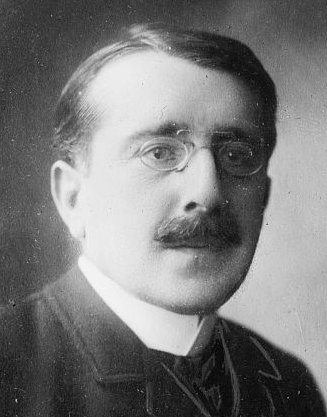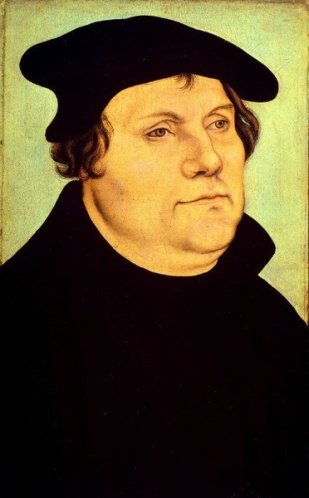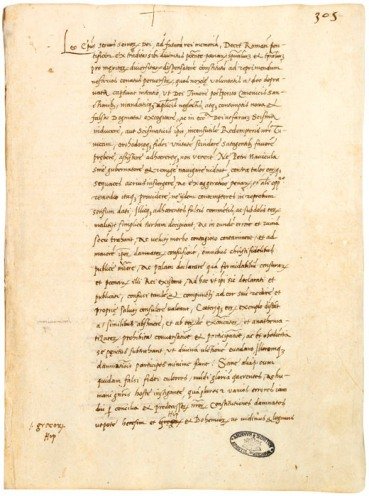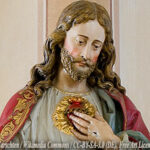In 1974, I had the honour of being the first to sign a declaration published in a number of the main Brazilian dailies and reproduced in almost all the nations where the then eleven TFPs existed. Its title was The Vatican Policy of Détente with the Communist Governments – For the TFP: To Take No Stand? Or To Resist?.1
In that declaration the organisations stated their respectful disagreement with the “Ostpolitik” led by Paul VI, and expounded in detail their reasons for this. All of it, let it be said in passing, was expressed in such an orthodox manner that no one raised any objection.

Summing up in one sentence all their veneration for the Papacy and the firmness with which they stated their resistance to the Vatican’s Ostpolitik, the TFPs said to the Pontiff: “Our souls are thine, our lives are thine. Command us as thou wilt, but do not command us to cross our arms before the onslaught of the red wolf. To this our conscience is opposed.”
I recalled this statement with special sadness as I read the letter of John Paul II to Cardinal Willebrands2 regarding the five-hundredth anniversary of the birth of Martin Luther and signed last October 31, the anniversary of the heresiarch’s first act of rebellion in the church of the castle of Wittenberg. It is so full of benevolence and amenity that I asked myself if the august signer had forgotten the terrible blasphemies that the apostate friar had hurled against God, Jesus Christ the Son of God, the Blessed Sacrament, the Virgin Mary, and the Papacy itself.
Certainly he is not ignorant of them, for they are within reach of any cultured Catholic in respected books that are still not difficult to obtain today.
I have two of them in mind. The first is A Igreja, a Reforma, e a Civilização [The Church, the Reformation, and Civilisation], by the great Jesuit, Fr Leonel Franca. The silence of the ecclesiastical hierarchy is allowing dust to settle upon the book and the memory of its author.

The other book is by Frantz Funck-Brentano, one of the best known French historians of this century, a member of the Institut de France, and furthermore, a man whose motives are scarcely suspect, since he was a Protestant himself.
We shall begin by citing some texts from Funck-Brentano’s Luther.3
Let us go directly to this unspeakable blasphemy: “Christ,” said Luther, “committed adultery for the first time with the woman at the well, of whom John speaks. Did they not murmur around him: ‘What then did he do with her?’ Later, he did the same with Magdalen, and shortly thereafter with the adulterous woman, whom he absolved so lightly. Thus, Christ, so pious, also had to fornicate before dying.”4
Having read this, it is not surprising that Luther thinks, as Funck-Brentano points out, that “certainly God is great and powerful, good and merciful…but he is stupid – ‘Deus est stultissimus.’5 He is a tyrant. Moses was moved by his will, acting as his lieutenant, as his hangman, and was neither surpassed by anyone nor even equaled in scaring, terrorizing, and martyring the poor world.”6
This is strictly consistent with another of his blasphemies which makes God the one really responsible for the treason of Judas and the revolt of Adam: “Luther,” comments Funck-Brentano, “goes so far as to declare that Judas, in betraying Christ, acted under the imperious decision of the Almighty. His will (that of Judas), was directed by God; God moved him with His omnipotence. Adam himself, in the earthly paradise, was constrained to act as he did. He was placed by God in such a situation that it was impossible for him not to fall.”7

Consistent still with this abominable sequence, Luther, in a pamphlet titled “Against the Roman Pontificate Founded by the Devil” of March, 1545, called the Pope not “Holiness,” according to the custom, but “Most Infernal” and added that the Papacy had always shown itself to be bloodthirsty.8
It is no wonder that Luther, moved by such ideas, wrote to Melanchton regarding the bloody persecutions of Henry VIII against the Catholics of England: “It is licit to be wrathful when one knows what kind of traitors, thieves, and murderers the popes, their cardinals, and legates are. Would to God that many kings of England dedicate themselves to putting an end to them.”9
For this very same reason, he also exclaimed: “Enough of words: Fire and sword!” And he adds: “We punish thieves with the sword. Why should we not seize the pope, the cardinals, and the whole gang of the Roman Sodom and wash our hands in their blood?”10
Luther’s hatred accompanied him to the end of his life: Funck-Brentano affirms: “His last public sermon in Wittenberg was on January 17, 1546 – a last cry of malediction against the pope, the Sacrifice of the Mass, devotion to the Virgin.”11
It is no shock that great persecutors of the Church have celebrated his memory. Thus “Hitler ordered that October 31 be made a national holiday in Germany, commemorating the day in 1517 that the rebellious Augustinian friar fixed his famous 95 theses against pontifical supremacy and doctrines on the doors of the church of the castle of Wittenberg.”12
In spite of all the official atheism of the communist regime, Dr Erich Honnecker, president of the Council of State and the Council of Defence, and the top man in the German Democratic Republic, agreed to head the committee that organised last year’s garish commemorations of Luther right in Red Germany.13

Nothing is more natural than for the apostate friar to stir up such sentiments in a Nazi leader and, more recently, in a communist leader. But there is nothing more disconcerting, even dizzying, than what happened during the very recent commemoration of the five-hundredth anniversary of the birth of Luther in a squalid Protestant temple in Rome last December 11.
The prelate who participated in this festive act of love and admiration in memory of the heresiarch is the one whom the conclave of 1978 elected Pope, whose mission it would be, therefore, to defend the holy names of God and Jesus Christ, the Holy Mass, the Holy Eucharist, and the Papacy against heresiarchs and heretics!
“Dizzying, shocking,” groaned my Catholic heart, which nevertheless redoubled its faith in and veneration for the Papacy. The Church, the Reformation, and Civilisation, by the great Fr Leonel Franca, is left for me to cite in my next article. This article was originally published in the Folha de São Paulo, on December 27, 1983.
1. Folha de S.Paulo, 4/10/74
2. L’Osservatore Romano, Nov. 6, 1983
3. Luther, Paris, Grasset, 1934
4. Propos de Table, no. 1472, Weimar Ed. 2, 107; Cf. Funck-Brentano, p. 235
5. Propos de Table, no. 963, Weimar Ed. 1, 487
6. Funck-Brentano, p. 230
7. Funck-Brentano, p. 246
8. Funck-Brentano, pp. 337-338
9. Funck-Brentano, p. 254
10. Funck-Brentano, p. 104
11. p. 340
12. Funck-Brentano, p. 272
13. see German Comments, Osnabrück, West Germany, April, 1983
#MartinLuther#PlinioCorreadeOliveira
This year, it is more crucial than ever that we turn to prayer and intercession to increase devotion to Our Lady across our country. That’s why you’re invited to join us in the Three Hail Marys Pledge, a powerful devotion that can bring personal spiritual benefits and national transformation. By reciting three Hail Marys daily, you honour the Immaculate Heart of Mary and seek her intercession for the conversion of sinners, the salvation of souls and the restoration of Ireland’s Catholic Faith. This ancient devotion, revealed to Saint Mechtilde, promises spiritual benefits including protection from mortal sin and the assurance of a good death. Your daily prayers will contribute to an increase in devotion to Our Lady, the conversion of sinners and the moral renewal of our country. Let us commit to this powerful devotion and seek the guidance and protection of Our Lady.








From the historical Luther we see extreme animosity for Christianity especially Traditional Christianity in Catholicism. He was a rebel through and through and many ISMS of the following centuries can be traced back to his ideology of individualism with each going their own way, not God’s way. It is the Original Sin writ large in his life and in his intellectual pursuits. Modernism’s exoneration and sanctification of Luther is inexcusable. He opened the door for subsequent monsters to have theological cover for their atrocities.